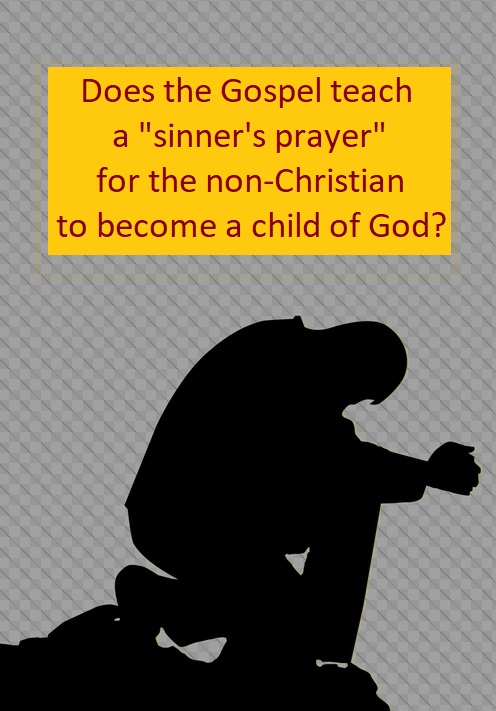“Go therefore and make disciples of all the nations…teaching them to observe all that I commanded you; and lo, I am with you always, even to the end of the age” (Matthew 28:19-20, NASB).
——————–
Contents:
1) Bible Prophecy (6) (Tom Edwards)
2) News & Notes
——————–

-1-
Bible Prophecy (6)
Tom Edwards
In thinking more of Jesus and prophecies concerning Him, Psalm 34:20 declares,
“He keeps all his bones,
Not one of them is broken.”
The apostle John cites this passage with regard to the Lord in John 19:36: “For these things came to pass to fulfill the Scripture,
‘NOT A BONE OF HIM SHALL BE BROKEN.’”
That not a bone of the Lord was broken is also an indication that He had died on the cross — and not merely passed out. John records: “Then the Jews, because it was the day of preparation, so that the bodies would not remain on the cross on the Sabbath (for that Sabbath was a high day), asked Pilate that their legs might be broken, and that they might be taken away. So the soldiers came, and broke the legs of the first man and of the other who was crucified with Him; but coming to Jesus, when they saw that He was already dead, they did not break His legs. But one of the soldiers pierced His side with a spear, and immediately blood and water came out” (vv. 31-34).
Dr. C. Truman Davis, M.D., M.S., wrote an article entitled, The Passion of Christ From A Medical Point of View. In an excerpt from that, he speaks of the need to raise oneself from the hanging position on a cross in order to breathe. He states: “At this point, another phenomenon occurs. As the arms fatigue, great waves of cramps sweep over the muscles, knotting them in deep, relentless, throbbing pain. With these cramps comes the inability to push Himself upward. Hanging by His arms, the pectoral muscles are paralyzed and the intercostal muscles are unable to act. Air can be drawn into the lungs, but cannot be exhaled. Jesus fights to raise Himself in order to get even one short breath. Finally, carbon dioxide builds up in the lungs and in the blood stream and the cramps partially subside. Spasmodically, He is able to push Himself upward to exhale and bring in the life-giving oxygen. It was undoubtedly during these periods that He uttered the seven short sentences which are recorded.”
So this helps us to better understand the connection of breaking the legs with crucifixion. For it would hinder the victim from being able to raise himself in order to breathe and, thus, speed up his death.
But for Jesus, after six hours of enduring the agony of the cross, along with the pain from the intense scourging that had preceded it, He cried out “with a loud voice,” … ’Father, INTO YOUR HANDS I COMMIT MY SPIRIT.’ Having said this, He breathed His last” (Luke 23:46).
In the same context of John 19:36, John also shows of another prophecy fulfilled at Calvary, as he mentions in verse 37: “And again another Scripture says, ‘THEY SHALL LOOK ON HIM WHOM THEY PIERCED.’” Where we find that back in the Old Testament is in Zechariah 12:10: “I will pour out on the house of David and on the inhabitants of Jerusalem, the Spirit of grace and of supplication, so that they will look on Me whom they have pierced; and they will mourn for Him, as one mourns for an only son, and they will weep bitterly over Him like the bitter weeping over a first-born.”
Not only did the Lord have His side pierced in His death, as we saw above, but also, as David writes in the Messianic Psalm 22:
“For dogs have surrounded me;
A band of evildoers has encompassed me;
They pierced my hands and my feet.
I can count all my bones.
They look, they stare at me” (vv. 16-17).
Also in the next verse of Psalm 22,
“They divide my garments among them,
And for my clothing they cast lots” (v. 18).
This we also see in the New Testament recordings: “And when they had crucified Him, they divided up His garments among themselves by casting lots” (Matt. 27:35).
John brings out a little more on that: “Then the soldiers, when they had crucified Jesus, took His outer garments and made four parts, a part to every soldier and also the tunic; now the tunic was seamless, woven in one piece. So they said to one another, ‘Let us not tear it, but cast lots for it, to decide whose it shall be’; this was to fulfill the Scripture: ‘THEY DIVIDED MY OUTER GARMENTS AMONG THEM, AND FOR MY CLOTHING THEY CAST LOTS’” (John 19:23-24).
The phrase “this was to fulfill the Scripture” does not mean that the Roman guards did what they did with the intent of fulfilling God’s word. For they probably had no idea they were doing so. The same can also be said in what we saw earlier, that “NOT A BONE OF HIM SHALL BE BROKEN.” For that was also preceded with, “for these things came to pass to fulfill the Scripture” (Jn. 19:36).
I would think there were many poor people living in and around Judea during the time that Jesus dwelt on earth; but it was a rich man who would take care of the Lord’s departed body, as prophesied in Isaiah 53:9:
“His grave was assigned with wicked men,
Yet He was with a rich man in His death,
Because He had done no violence,
Nor was there any deceit in His mouth.”
The New Testament shows that rich man to have been Joseph of Arimathea. Matthew writes: “When it was evening, there came a rich man from Arimathea, named Joseph, who himself had also become a disciple of Jesus. This man went to Pilate and asked for the body of Jesus. Then Pilate ordered it to be given to him. And Joseph took the body and wrapped it in a clean linen cloth, and laid it in his own new tomb, which he had hewn out in the rock; and he rolled a large stone against the entrance of the tomb and went away” (Matt. 27:57-60).
Mark’s account gives the additional information that Joseph was “a prominent member of the Council, who himself was waiting for the kingdom of God; and he gathered up courage and went in before Pilate, and asked for the body of Jesus” (Mark 15:42-43).
It was also then, while Joseph was there, that Pilate had wondered if Jesus was dead by that time. So he summoned the centurion to inquire. On finding out that it was so, Pilate then “granted the body to Joseph” (vv. 44-45).
John speaks of Joseph as being a “secret” disciple of the Lord, due to the “fear of the Jews” (Jn. 19:38).
Luke refers to Joseph as being “a good and righteous man” (Luke 23:50), and one who had “not consented” to the plan and action of the Council (v. 51) who had “all condemned” Jesus “to be deserving of death” (Mark 14:64). So Joseph showed courage in his opposition toward the Council and in His requesting for the body of Jesus.
According to the International Standard Bible Encyclopedia, it was “the condemnation of his Lord [that] awakened the courage and revealed the true faith of Joseph.”
Luke also mentions that this new tomb, which Joseph provided for Jesus, had never been used by any other (v. 53).
Charles Dickens begins his historical novel, “A Tale of Two Cities” by describing, “It was the best of times, it was the worst of times…” Perhaps that also reminds us of when we think of the cross — but even more so. For what could man ever have done that would be more terrible than putting to death the innocent and perfect Son of God — our Creator! Yet, at the same time, what could ever be more of a benefit for mankind than that wonderful atonement that Jesus made by His death for every sinner — an atonement that can save us from an eternal separation from God and make possible, instead, an everlasting blissfulness in heaven!
(All Scripture from the NASB, unless otherwise indicated.)
——————–
The Steps That Lead to Eternal Salvation
1) Hear the gospel, for that is how faith comes (Rom. 10:17; John 20:30-31).
2) Believe in the deity of Christ (John 8:24; John 3:18).
3) Repent of sins (Luke 13:5; Acts 17:30).
4) Confess faith in Christ (Rom. 10:9-10; Acts 8:36-38).
5) Be baptized in water for the remission of sins (Mark 16:16; Acts 2:38; 22:16; Rom. 6:3-4; Gal. 3:26-27; 1 Pet. 3:21).
6) Continue in the faith, living for the Lord; for, if not, salvation can be lost (Heb. 10:36-39; Rev. 2:10; 2 Pet. 2:20-22).
——————–
Tebeau Street
CHURCH OF CHRIST
1402 Tebeau Street, Waycross, GA 31501
Sunday services: 9:00 a.m. (Bible class); 10 a.m. & 5 p.m. (worship)
Wednesday: 7 p.m. (Bible class)
evangelist/editor: Tom Edwards (912) 614-8593
Tom@ThomasTEdwards.com
http://thomastedwards.com/go (Older version of Gospel Observer website without pictures, but back to March 1990)
http://tebeaustreetchurchofchrist.org/
http://ThomasTEdwards.com/audioser.html (audio sermons)








